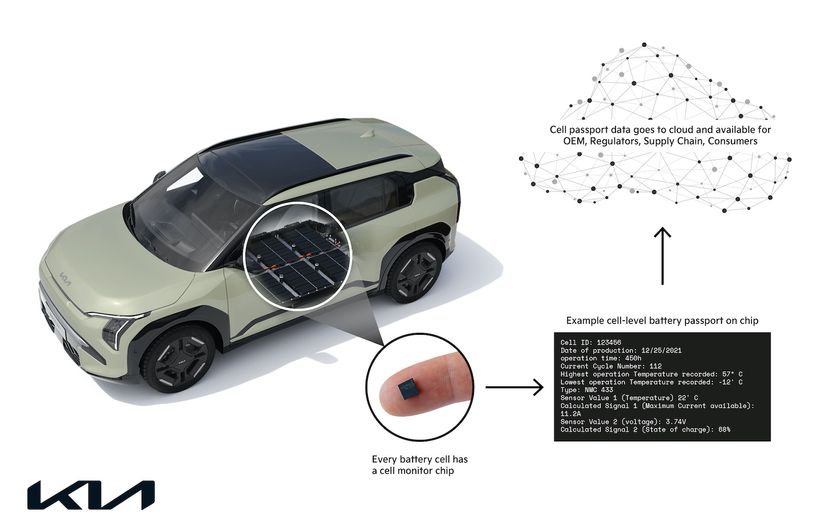Kia is conducting the first public trial of an electronic battery passport, which will ensure visibility EV battery health by providing live detailed data for each battery cell. This will lead to extended battery life, more affordable maintenance, and a higher level of trust when buying or selling used EVs.
For the trial, a Kia EV3 equipped with a Dukosi battery cell monitoring system was shipped from Korea to Europe, arriving in Germany in February. The trial vehicle is capable of monitoring and transmitting live data for each cell of the battery pack and uploading it to its digital battery passport.
It can monitor State of Health (SoH), real-time repair diagnostics, and end-to-end traceability across the battery’s lifecycle.
Once the data is uploaded, users, mechanics, and regulators, among others, can access real-time information on the battery’s SoH through the car’s infotainment system. To ensure accuracy and traceability throughout the battery’s lifecycle, the system automatically updates after any repair work.
Compared to conventional monitoring systems that only measure SoH of the entire battery pack or module, Kia’s research gathers and displays data for each cell. This means customers can identify and address maintenance issues early and target cell-specific repairs, saving both time and money.
Live battery data also increases resale values and allows more effective battery reuse and recycling. This makes it easier to keep EV batteries on the market longer and reduce waste.
Separate from this research, Kia has developed its own battery passport which will go beyond the planned regulatory requirements by including additional safety-related data. Kia plans to provide this service for all EV/HEV models sold in Europe by February 2027, as required by the EU battery regulation.
 The electronic passport makes it easier to monitor cell health so EV batteries can be easily repaired, reused and recycled
The electronic passport makes it easier to monitor cell health so EV batteries can be easily repaired, reused and recycled 










